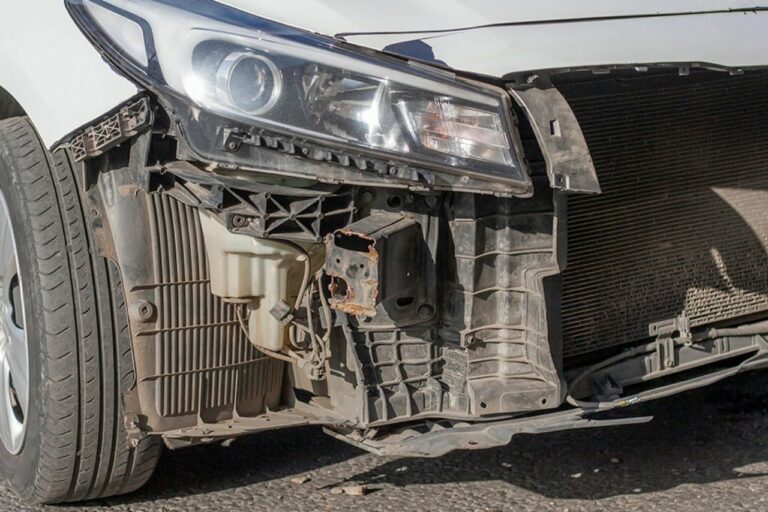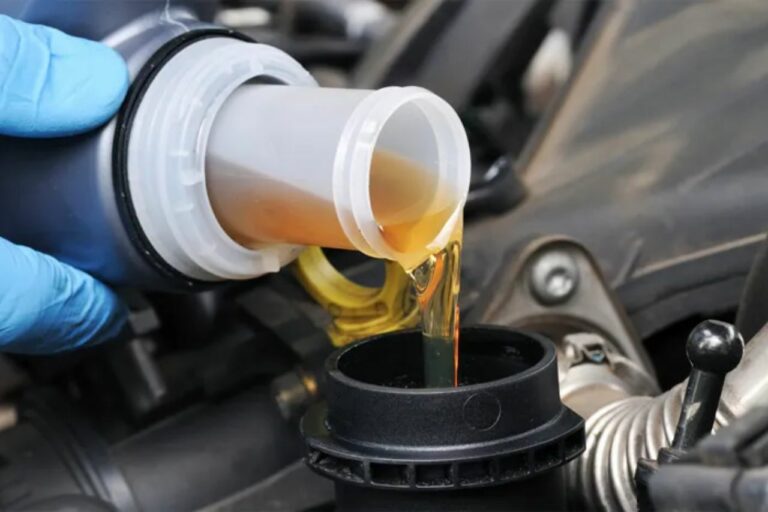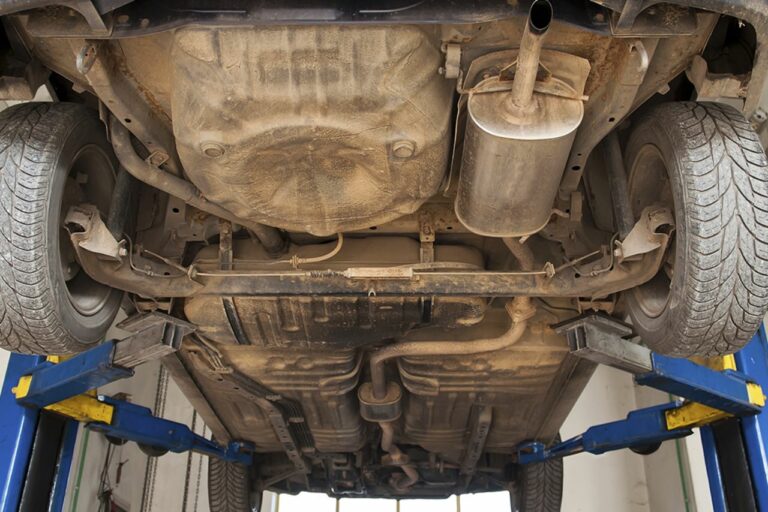Why Does My Car Start Shaking When Parked? Causes & Fixes!

If you’ve ever experienced your car shaking when parked, you’re not alone.
It can be a disconcerting feeling, leaving you wondering what could be causing it and how to fix the issue.
In this article, we’ll explore the possible causes and solutions for why your car starts shaking when parked.
Why Does My Car Start Shaking When Parked?
Your car might start shaking when parked due to worn or damaged engine mounts, misfiring spark plugs, clogged fuel filter, loose or damaged belts, or improper wheel alignment. If you notice your car shaking when parked, it is important to have it checked by a mechanic to determine the cause of the problem.
There are several reasons why your car may shake while idle in park.
One common cause is engine misfires, which occur when the fuel-air mixture in one or more cylinders fails to ignite properly.
This can lead to uneven combustion and cause the engine to vibrate.
Another potential culprit is worn-out spark plugs or ignition coils that need replacement.
Additionally, issues with the fuel system, such as clogged fuel injectors or a faulty fuel pump, can also result in shaky idling.
By identifying these underlying causes and implementing appropriate fixes, you can restore smoothness to your parked vehicle and ensure optimal performance on the road ahead.
Common Causes of Car Shaking When Parked:
When your car starts shaking while parked, it can be a cause for concern.
Here are some common reasons why this might happen and how you can fix them:
1: Engine Problems:
- Misfiring spark plugs: Faulty or worn-out spark plugs can lead to engine misfires, causing vibrations.
- Dirty fuel injectors: Clogged fuel injectors disrupt the combustion process and result in rough idling.
- Vacuum leaks: Leaky vacuum hoses or intake manifold gaskets can introduce excess air into the engine, leading to shaking.
2: Worn Suspension Components:
- Damaged shocks or struts: Worn-out suspension components lose their ability to absorb vibrations, causing the car to shake when stationary.
- Broken mounts: If the engine or transmission mounts are damaged, they may not hold the components firmly in place, resulting in shaking.
3: Imbalanced Wheels:
- Wheel imbalance: Unevenly distributed weight on wheels due to imbalanced tire alignment or missing wheel weights can cause noticeable vibrations at idle.
4: Faulty Exhaust System:
- Loose or broken exhaust parts: A compromised exhaust system with loose brackets or damaged mufflers may transmit vibrations throughout the vehicle.
5: Low Fluid Levels:
- Low engine oil level: Inadequate lubrication causes friction between moving parts and leads to rough idling.
6: Transmission Issues:
Worn clutch disc (manual transmission): A worn-out clutch disc does not engage smoothly when shifting gears and results in jerking motions.
If your car starts shaking when parked, it is recommended that you consult a professional mechanic who can diagnose and address these issues accurately.
Regular maintenance such as replacing spark plugs, changing fluids regularly, aligning tires properly, and inspecting suspension components will help prevent these problems from arising in the first place.
Engine Problems That Cause Car Shaking in Idle:
When your car starts shaking while parked and idle, it is often an indication of underlying engine problems.
Here are some common causes and fixes to address this issue:
- Spark Plug Issues: Faulty or worn-out spark plugs can disrupt the combustion process, leading to engine misfires and vibrations. Replace damaged or dirty spark plugs regularly to ensure smooth operation.
- Fuel System Troubles: A clogged fuel injector or a malfunctioning fuel pump can result in uneven fuel distribution, causing rough idling and shaking sensations. Consider cleaning or replacing these components as necessary.
- Vacuum Leaks: Any leaks in the vacuum system can disturb the air-fuel mixture ratio required for proper engine functioning at idle speed. Inspect hoses, gaskets, and connections for damage or wear, fixing any issues promptly.
- Ignition Coil Problems: Malfunctioning ignition coils may cause intermittent sparks in the ignition system, leading to unstable idling and shaking symptoms. Check for faulty coils and replace them if needed.
- Faulty Oxygen Sensor: When the oxygen sensor fails to provide accurate readings about the air-fuel mixture, it can lead to an imbalanced combustion process that results in rough idling behavior. Replacing a faulty oxygen sensor should resolve this problem.
- Engine Mounts Wearing Out: Over time, engine mounts deteriorate due to constant vibration exposure which can impact their ability to absorb shocks properly during idle conditions resulting in noticeable shaking sensations when parked with the engine running smoothly otherwise.
- Dirty Air Filter: A clogged air filter restricts airflow into the engine causing an imbalance between air and fuel ratios leading to rough idling behavior along with potential shaking issues at standstill positions like parking scenarios; hence regular replacement of air filters helps maintain optimal performance.
Remember that while these are common causes of car shaking at idle, it is always advisable to consult a professional mechanic for accurate diagnosis and appropriate solutions.
Addressing these engine problems promptly will not only improve the smoothness of your car’s idle but also contribute to its overall longevity and performance.
Fuel System Issues That Result in Car Shaking at Standstill:
If your car starts shaking when parked, it could be due to various fuel system issues. Here are some common causes and fixes to consider:
1: Clogged Fuel Injectors: Over time, dirt and debris can accumulate in the fuel injectors, leading to improper fuel spray patterns and an unbalanced engine. To address this issue:
- Use a high-quality fuel injector cleaner additive regularly.
- Consider professional cleaning if the problem persists.
2: Dirty or Faulty Mass Airflow Sensor (MAF): The MAF sensor measures the amount of air entering the engine for proper fuel-to-air ratio. When contaminated or malfunctioning, it can cause rough idling and shaking at standstill. Try these solutions:
- Clean the MAF sensor with specialized cleaner following manufacturer instructions.
- If cleaning doesn’t help, replace the faulty sensor.
3: Faulty Spark Plugs: Worn-out spark plugs can result in misfires during idle, causing vibrations in your car’s engine. To resolve this issue:
- Inspect the condition of your spark plugs regularly.
- Replace any worn-out or damaged spark plugs with new ones recommended by your vehicle’s manufacturer.
4: Fuel Pump Problems: A failing fuel pump may not deliver enough pressure to properly distribute fuel throughout the engine, leading to rough idling and shaking while parked. Consider these actions:
- Check if there are any signs of a weak or failing fuel pump (e.g., sputtering engine).
- Consult a qualified mechanic for diagnosis and potential replacement if necessary.
5: Vacuum Leaks: Any leaks in the vacuum system disrupt proper air-fuel mixture ratios and can contribute to shaking when stationary. Follow these steps:
1) Examine hoses connected to intake manifold for cracks or loose connections.
2) Replace or repair damaged hoses to rectify the vacuum leak.
Remember, these are just a few potential fuel system issues that can cause your car to shake when parked. If you’re unsure about diagnosing or fixing the problem yourself, it’s always best to consult a professional mechanic for accurate diagnosis and proper repairs.
Electrical Problems and Their Impact on Car Vibrations in Park:
Electrical problems can also contribute to car vibrations when parked.
Here are some common electrical issues that may cause your car to shake:
- Faulty spark plugs: Spark plugs play a crucial role in igniting the fuel-air mixture in the engine cylinders. If they become worn or dirty, it can lead to incomplete combustion, resulting in engine misfires and vibrations.
- Malfunctioning ignition coils: Ignition coils generate high voltage needed to ignite the spark plugs. When these coils fail, it can disrupt the firing sequence, leading to rough idling and shaking of the car.
- Failing alternator: The alternator is responsible for charging the battery while driving and powering various electrical components of your vehicle. A failing alternator may not provide enough power, causing irregular engine operation and vibration.
- Weak battery: If your car’s battery is weak or nearing the end of its lifespan, it may struggle to supply sufficient power for starting up or running electronic systems smoothly. This could result in poor engine performance and noticeable vibrations at idle.
- Wiring issues: Damaged or loose wiring connections within your car’s electrical system can disrupt communication between different components, including sensors that regulate engine performance. These disruptions can manifest as shaking when parked.
6 .Faulty sensors: Modern cars rely on numerous sensors to monitor various parameters such as air intake, fuel injection timing, and exhaust emissions control systems for optimal performance. Malfunctioning sensors can send incorrect signals to the ECU (engine control unit), leading to erratic behavior like rough idling or shaking.
To fix these electrical problems contributing to car vibrations:
- Regularly inspect and replace worn-out spark plugs.
- Have faulty ignition coils diagnosed by a professional mechanic.
- Test the alternator’s output using a multimeter; consider replacing if necessary.
- Replace weak batteries with new ones.
- Inspect wiring connections and repair any damages or loose connections.
- Diagnose and replace malfunctioning sensors.
By addressing these electrical issues promptly, you can restore smooth engine operation and eliminate the vibrations experienced when your car is parked.
Transmission Troubles Leading to Shaking When Vehicle is Stationary:
If your car starts shaking when parked, it could be due to transmission issues.
The transmission plays a crucial role in the smooth operation of your vehicle and any problems with it can lead to vibrations even when the car is not moving.
Here are some common causes and fixes for transmission troubles that can result in shaking:
- Low Transmission Fluid: Insufficient fluid levels can cause the transmission to operate inefficiently, leading to vibrations. Check the fluid level using the dipstick and if it’s low, top it up with the recommended type of transmission fluid.
- Worn-out Torque Converter: A faulty torque converter can result in rough idling and vibration when your car is stationary. If you notice these symptoms along with a decrease in fuel efficiency or difficulty shifting gears while driving, consider having your torque converter inspected by a professional mechanic.
- Malfunctioning Clutch System: Manual transmission cars rely on a clutch system that engages and disengages power between the engine and gearbox. If there are problems with this system such as worn-out components or improper adjustment, it can lead to shaking when your vehicle is at rest.
- Damaged Engine Mounts: Engine mounts secure the engine to the chassis of your car, reducing vibrations caused by its operation. Over time, these mounts may wear out or become damaged, resulting in excessive engine movement and noticeable shaking.
- Faulty Transmission Control Module (TCM): The TCM controls various aspects of automatic transmissions including gear shifts and engagement/disengagement processes. When this module malfunctions or fails altogether, it can disrupt normal transmission operations leading to shaking during idle periods.
6 .Broken Drive Shaft: In rear-wheel drive vehicles equipped with universal joints (U-joints), a broken drive shaft U-joint may cause shaking while parked as well as during acceleration or deceleration. A broken drive shaft requires immediate attention and replacement by a qualified technician.
If your car is experiencing shaking when parked, it’s essential to address the underlying transmission issues promptly.
Consult with a professional mechanic who specializes in transmissions to accurately diagnose the problem and carry out any necessary repairs or replacements.
Suspension and Wheel Related Factors Contributing to Car Shake While Parked:
When your car starts shaking while parked, it can be quite concerning.
Several suspension and wheel related factors could contribute to this issue.
Here are some common causes along with their respective fixes:
- Worn or Damaged Shocks: Over time, shocks can wear out or become damaged, resulting in a shaky ride even when the vehicle is stationary. To fix this, you’ll need to replace the worn-out shocks with new ones.
- Unbalanced Wheels: If your wheels are not properly balanced, they can cause vibrations that make your car shake while parked. Taking your vehicle to a professional tire shop for wheel balancing should resolve this problem.
- Misaligned Wheels: When your wheels are not aligned correctly, it can lead to uneven tire wear and vibration issues while driving or idling. A qualified mechanic will be able to realign the wheels using specialized equipment.
- Tire Issues: Worn-out tires with uneven tread wear patterns or bulges may also cause shaking when parked as well as during driving. Inspect the tires for any signs of damage and replace them if necessary.
- Faulty Wheel Bearings: Faulty wheel bearings can lead to excessive play in the wheels, causing vibrations at idle or when stationary. It’s crucial to have a professional inspect and replace any faulty bearings promptly.
- Suspension Bushings Wear: Worn-out suspension bushings can result in increased movement of suspension components and contribute to car shake while parked or even during low-speed maneuvers like turning corners slowly.
7 .Loose Bolts/Nuts: Loose bolts/nuts within the suspension system may create instability leading to vibrations at rest or while driving slow speeds; ensure all bolts/nuts are tightened properly by a mechanic.
By addressing these suspension and wheel-related factors promptly through appropriate repairs or replacements by professionals, you can restore a smoother and more stable ride for your parked car.
How to Fix Car Shaking Issues When the Engine is Not Running?
If your car starts shaking when parked or idle, there are a few fixes you can try before taking it to a mechanic.
Here’s what you can do:
- Check for loose parts: Inspect the engine bay and look for any loose components such as hoses, belts, or wires. Tighten them if necessary.
- Clean the throttle body: A dirty throttle body can cause uneven idling and vibrations. Remove the air intake hose and use a throttle cleaner spray to clean the throttle plate thoroughly.
- Inspect spark plugs: Worn-out or faulty spark plugs could lead to poor combustion and engine misfires, resulting in shaking while parked. Check their condition and replace them if needed.
- Clean fuel injectors: Over time, fuel injectors can become clogged with deposits, affecting engine performance at idle speeds. Consider using a fuel injector cleaner additive or have them professionally cleaned.
- Address vacuum leaks: Leaks in the vacuum system can disrupt air/fuel mixture ratios and contribute to rough idling issues. Inspect all vacuum lines carefully for cracks or disconnections and repair or replace as necessary.
- Balance tires: An unbalanced set of tires can cause vibration even when stationary due to weight distribution issues caused by uneven wear or improper alignment. Visit an auto shop to have your tires balanced correctly.
- Replace motor mounts: Broken or worn-out motor mounts may allow excessive engine movement during idle, leading to noticeable shaking in the cabin area when parked without accelerating. Issue Solution Loose parts Tighten any loose components found in the engine bay Dirty throttle body Clean the throttle plate using a suitable cleaner spray Faulty spark plugs Replace worn-out or faulty spark plugs Clogged fuel injectors Use a fuel injector cleaner additive or professional cleaning service Vacuum leaks Inspect and repair any cracked or disconnected vacuum lines Unbalanced tires Have your tires balanced by a professional Broken motor mounts Replace broken or worn-out motor mounts
Remember, these fixes may help resolve minor shaking issues when the engine is not running. If the problem persists, it’s recommended to consult with a qualified mechanic for further diagnosis and repairs.
Conclusion: Why Does My Car Start Shaking When Parked?
In conclusion, experiencing a shaking sensation when your car is parked can be concerning.
However, there are several common causes and fixes for this issue that you can explore.
One possible cause of your car shaking when parked could be an engine misfire or uneven fuel distribution.
This can happen due to worn spark plugs, a malfunctioning fuel injector, or even a vacuum leak.
To fix this problem, it is recommended to have your engine inspected by a qualified mechanic who can identify the specific issue and replace any faulty components.
Another potential cause of shaking while parked is related to the suspension system. Worn-out shock absorbers or damaged suspension components such as control arms or bushings may lead to vibrations when the vehicle is at rest.
If this is the case, visiting an auto repair shop for a thorough inspection and necessary repairs should help resolve the problem.
In summary, identifying and addressing the underlying cause of your car’s shaking when parked will ensure both your safety and peace of mind. By understanding these common causes and seeking professional assistance if needed, you’ll be able to enjoy smooth rides in no time!






